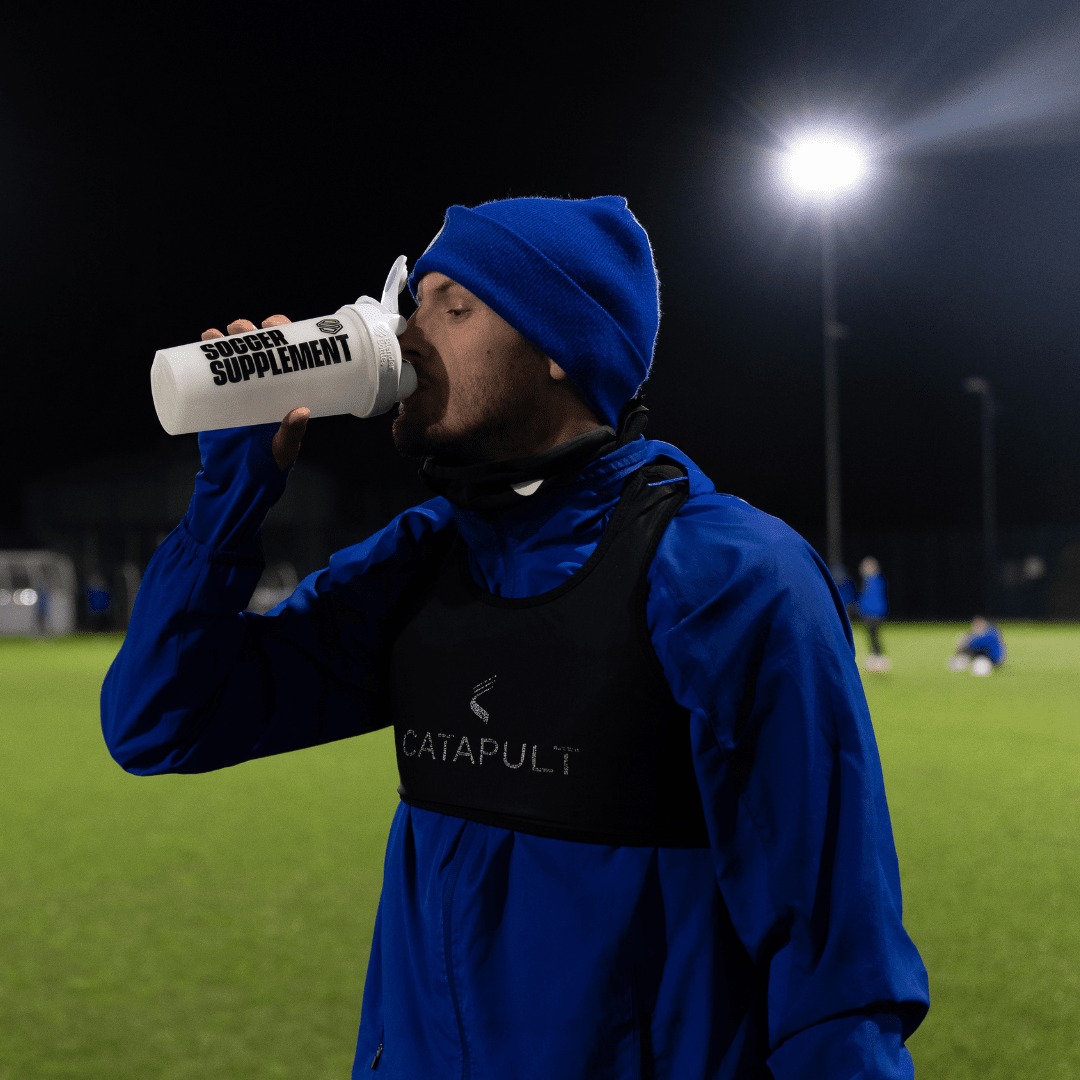Speed is key.
Therefore, anything that has the potential to make you run even a little bit faster should be taken very seriously. Your football training sessions (at any level) will almost always start with a pretty general warm up with some mobility and stability work (to varying degrees) prescribed to ready you for the session. These warmups are usually concluded with some form of speed work, be that a hurdle drill, cone drill, partner-based drill; all with the aim of making you faster. But will it? Traditionally, footballer’s have dreaded lower body weightlifting fearing it will make them ‘slugglish’ or ‘heavy and slow’. However, if we quickly run over some basic physics (bear with us); acceleration = force/mass. Therefore, if we plan on accelerating faster one of two things has to happen, lose weight (pro clubs will vary between ~10-13% body fat depending on body type and position) or increase the force you are able to transmit into the floor. What is the most straight forward way to increase this force output? Lifting heavy weights – the key there is HEAVY.
Lifting weights, general, global, non-specific weights will of course do wonders to your health and fitness; however, when plotting specific performance enhancement, we must be more precise with our prescription. Testing (or at least being able to guesstimate with reasonable accuracy) your 1-repetition maximum (as it says the maximum weight you can lift for one rep) is fundamental to being able to prescribe loads designed to help you get faster. Big movements like Squatting, Deadlifting or (if your competent) Olympic Weightlifting using more than 80-85% of your 1-repetition maximum produces enough neural drive/recruitment (basically intensity) to improve your current force producing ceiling. Therefore, once a fundamental weight training block has been well established, using higher loads to produce greater forces, subsequently inducing the required intensities is fundamental to increasing force outputs.

The key therefore is relative strength. Being able to lift a ‘good’ amount of weight versus your bodyweight, for example if your 100 kilograms and you squat 100 kilograms that is 1x bodyweight, conversely if you are 100 kilograms and squat 200 kilograms that is 2x bodyweight. Pushing the ratio up and towards 2x bodyweight should be the aim for the majority of footballers, some will have the capability to chase 2.5, others will need to be content with 1.5x bodyweight. Put simply it works best using the car analogy, if you take a car with 200 break horsepower, improve it to 300 break horse power – you will be accelerating faster, with a quicker top speed. The same is true with the human body. A lot of the lessons you will learn pulling a heavy bar from the floor or driving a loaded bar back up to neutral will transfer to greatly to sprinting. Getting tight and staying stiff! Strange as it sounds, how much give in F1 car suspension do you see? The next step, much like a car, is getting that horsepower down onto the road, or in this case the grass! Therefore, ‘producing this force quickly’, or ‘the technical components of running fast’ – would be the right questions to ask next. Following on from this blog we will focus on both components, however we have deliberately started with getting stronger first. A wealth of published research has already found strength to help decrease injury, jump higher, change direction faster, increase recovery rates … so it becomes the foundation of physical performance. If your trying to improve an aspect of your speed on the field with poor relative strength levels, then forget it – your skirting the issue.

Now, all of this thus far sounds pretty rosy, continue to lift heavy weights and watch your sprint times tumble, however the ever-irritating plateau will find you when progressing along an intensive lifting programme. Every training programme will have a sell by date specific to the individual user, important to note - if your continuing to improve – don’t stop just because you got to the end of the ‘4’ or ‘6’ week training block. That said, programming in lower training loads with deload weeks is fundamental to a successful training programme when fatigue and plateau’s begin to appear. Creatine Monohydrate has been used by gym goers to help increase energy levels specific to weightlifting for years, the science behind it is comprehensive and in comparison, to other ‘workout’ supplements pretty overwhelming. Be sure to check out our Creapure Creatine, increasing the bodies availability of ATP (its most immediate energy source) during explosive activities is crucial so be sure to get it on board! Any questions or queries on this weeks topic, please reach out!






